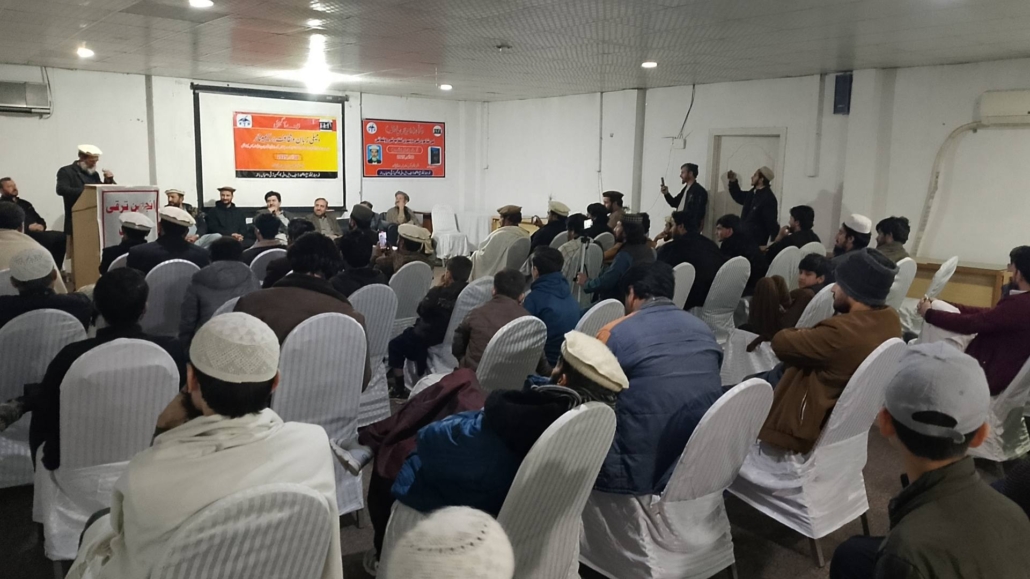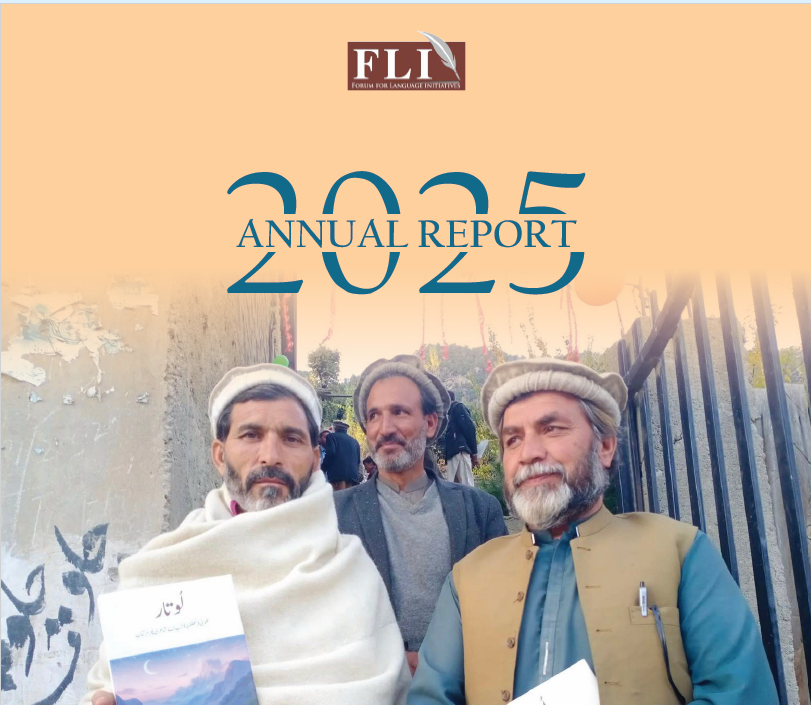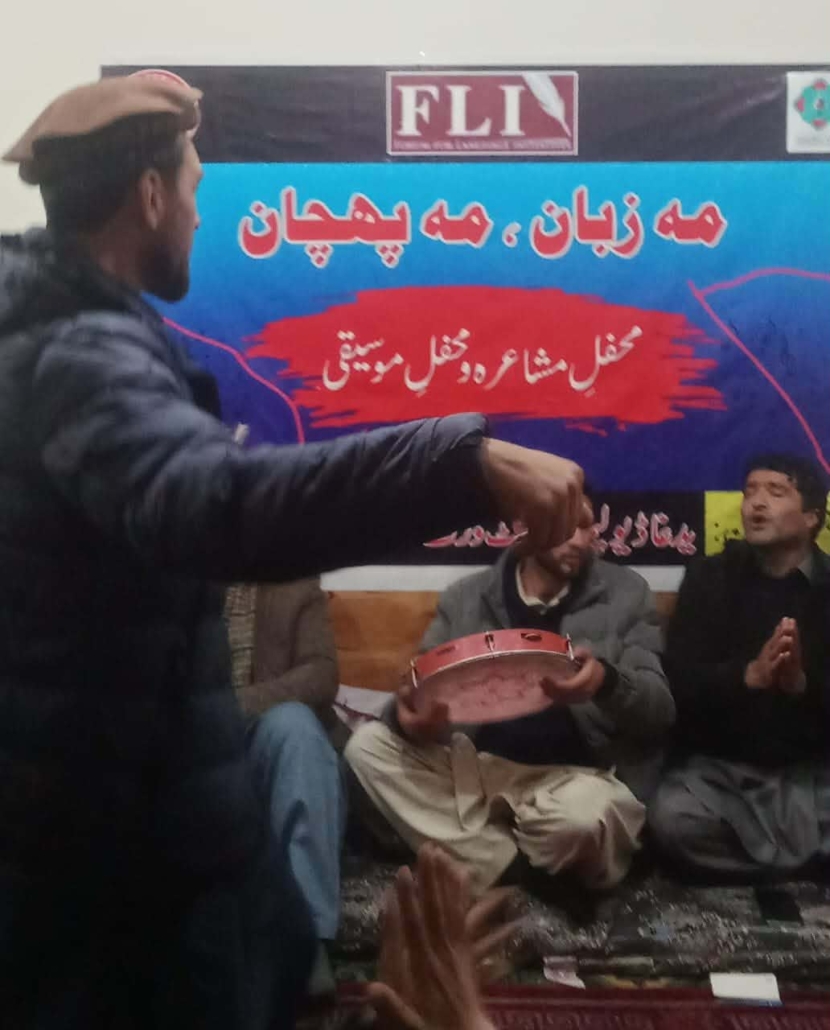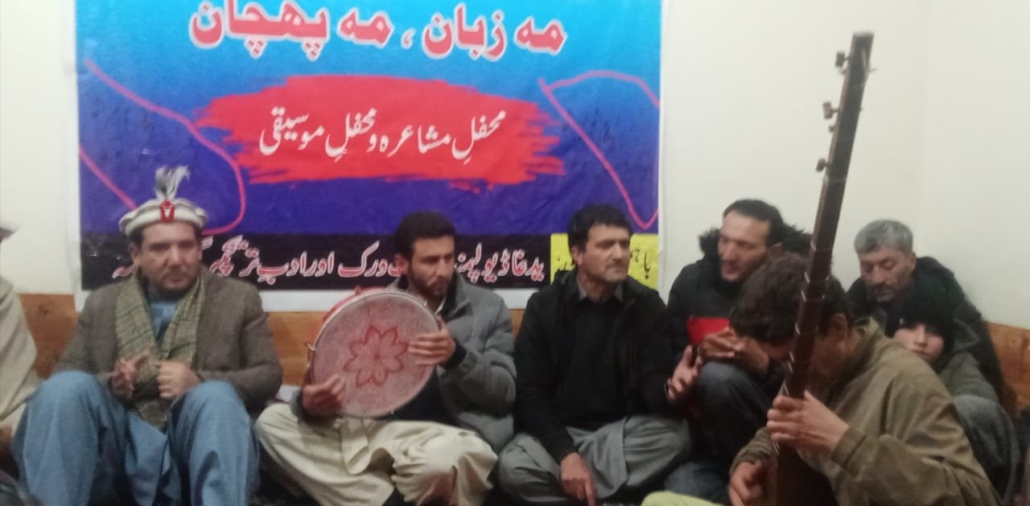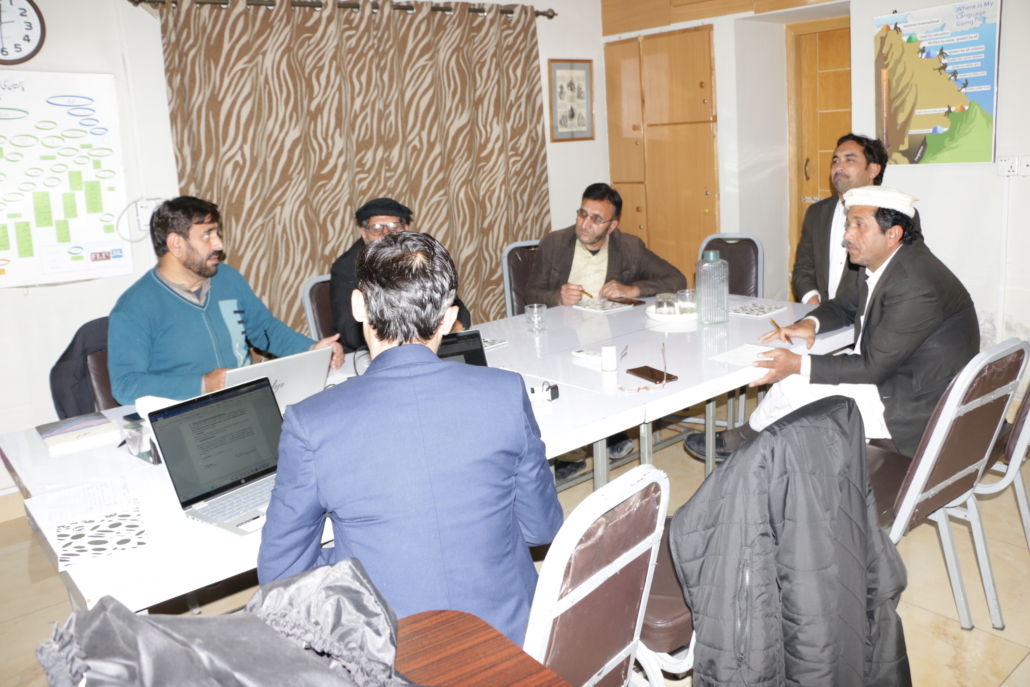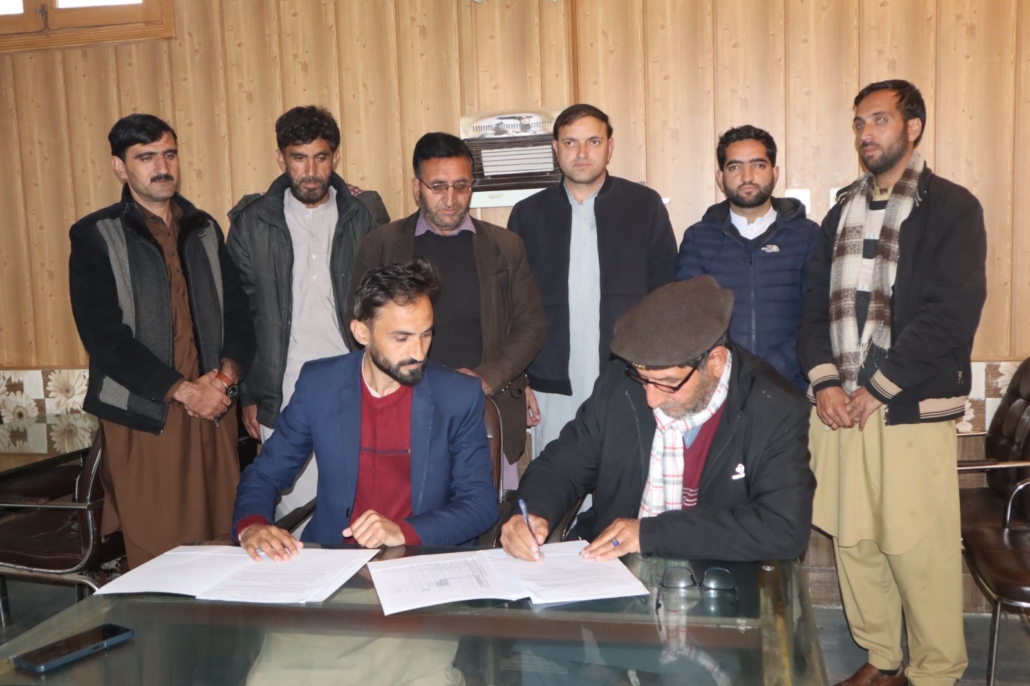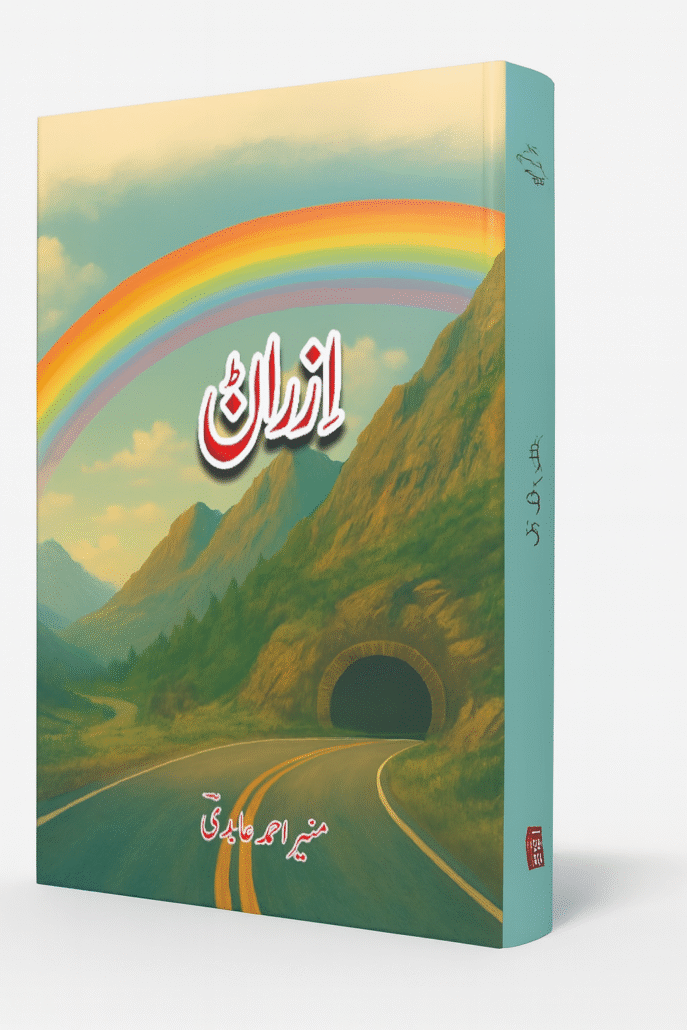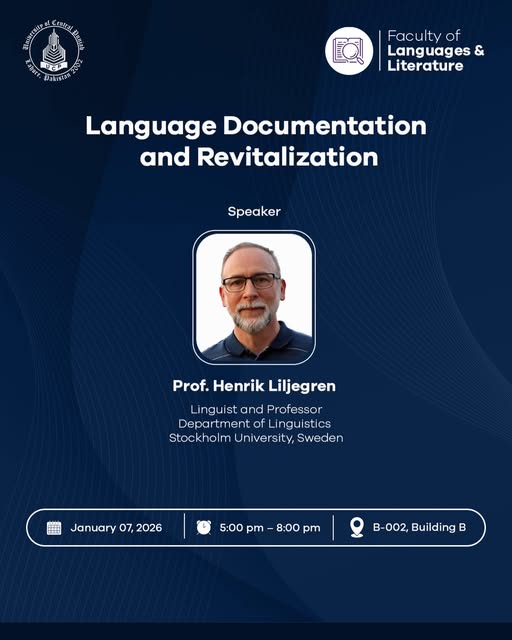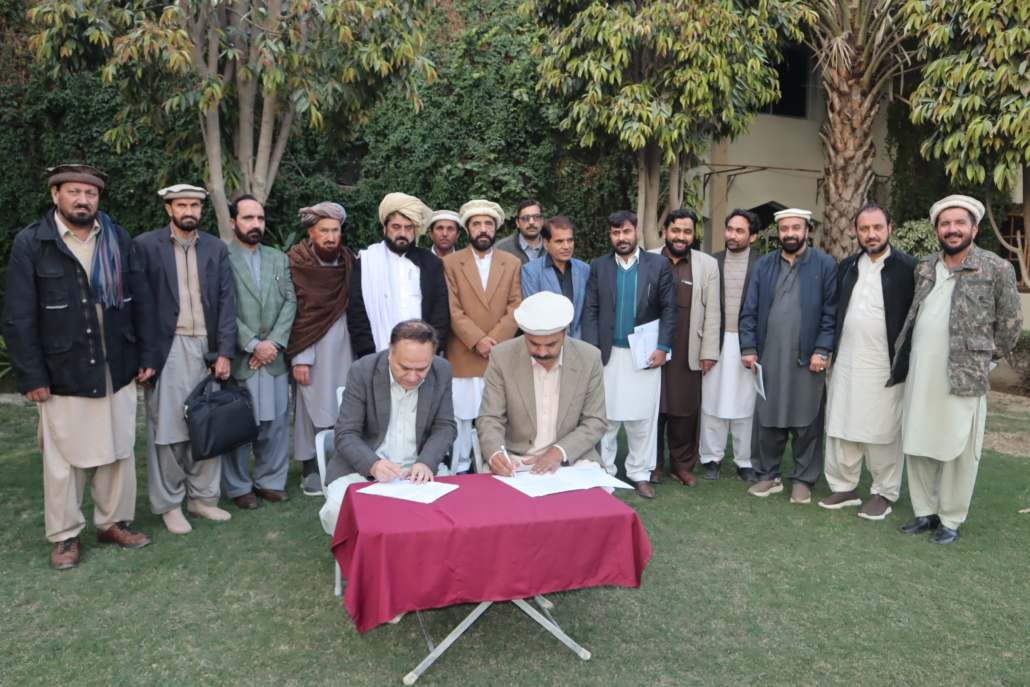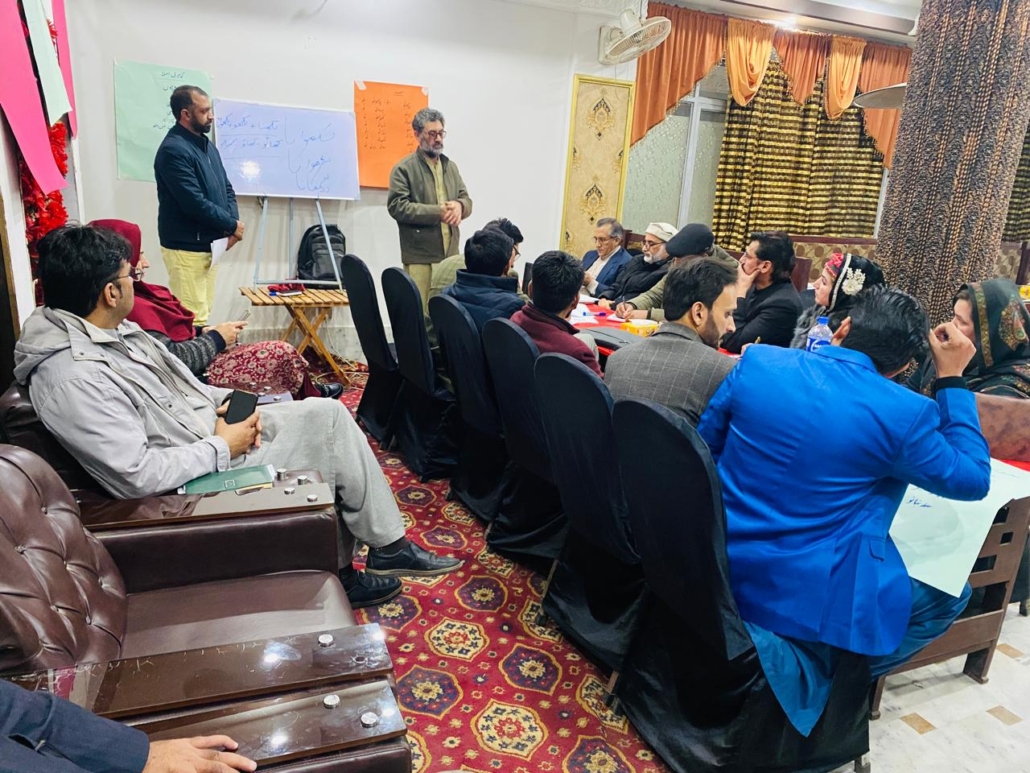Peshawar, Dec 30 – The Anjuman Taraqqi Damiyan Basha in collaboration with the Forum for Language Initiatives (FLI) organized a seminar dedicated to the Dameli language and culture. The highlight of the program was the launch of Push Bati (Bouquet of Flowers), a poetry collection by renowned Dameli poet Muhammad Akram Khaksar, published by FLI.
The event, held at SS Club Hotel Peshawar, featured scholarly papers, dialogues, and poetry recitations. Mr. Saeed Ahmad Saeed, Secretary PMD, graced the occasion as chief guest, while Mr. Mehrban Elahi Hanfi, President of Anjuman Taraqqi Khowar (Peshawar chapter) and Assistant Director, Public Service Commission, presided over the session. Mr. Fakhruddin Akhunzada, Director of FLI, traveled from Islamabad to attend and enrich the gathering.
A large number of Dameli elders, scholars, and youth residing in Peshawar participated enthusiastically. Chairman ATD, Asmatullah Dameli, expressed gratitude to FLI staff, particularly Director Mr. Fakhruddin Khanzada, for their pivotal role in publishing the book. He emphasized that the current standing of the Dameli language owes much to FLI’s efforts and hoped for continued support.
Speaking at the seminar, the Executive Director of FLI praised Khaksar’s remarkable poetry, noting that Push Bati will play a vital role in promoting Dameli literature, preserving the language, and inspiring the younger generation to engage with Dameli literary traditions.
The program concluded with Dameli poets reciting their verses, adding beauty and depth to the gathering. Members of Anjuman Taraqqi Damiyan Basha thanked all participants for their presence and contributions, which ensured the success of the event.
